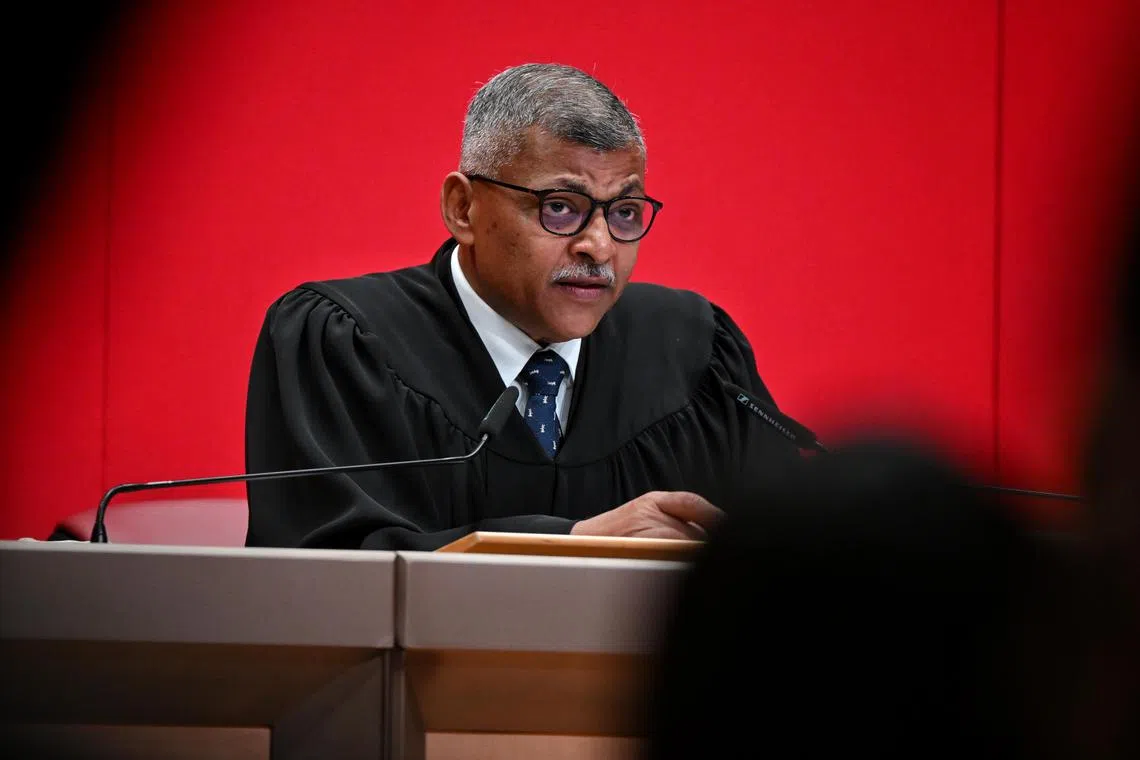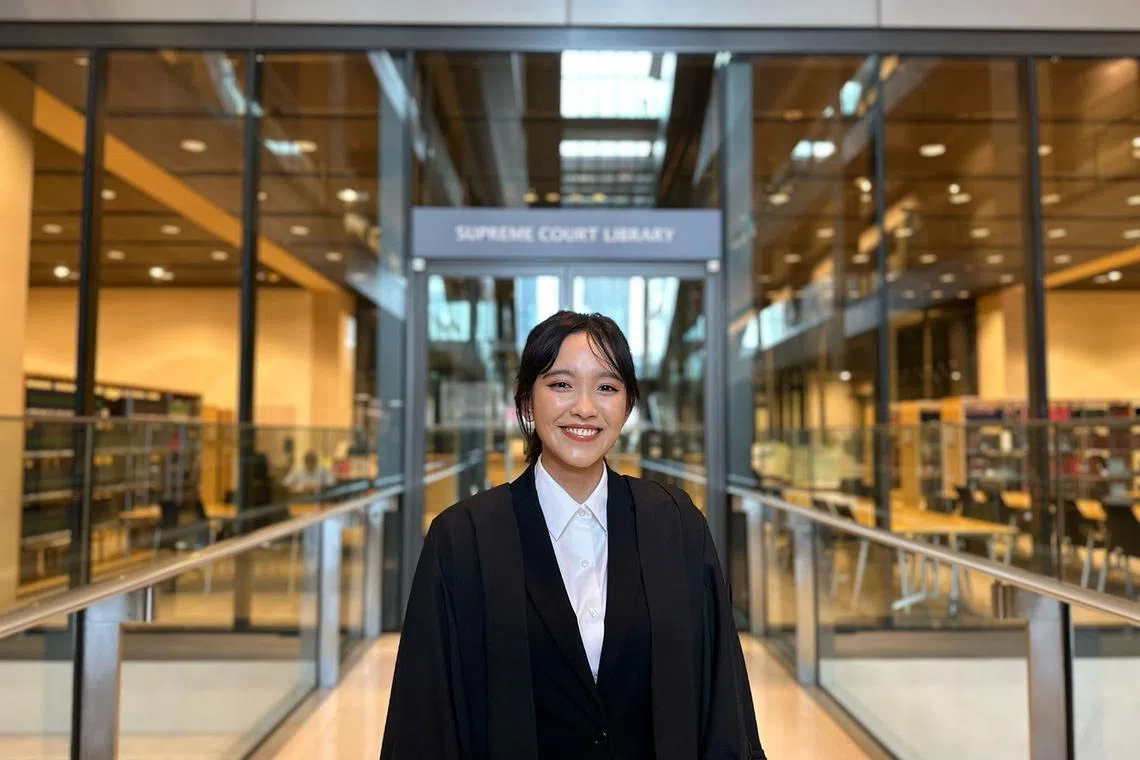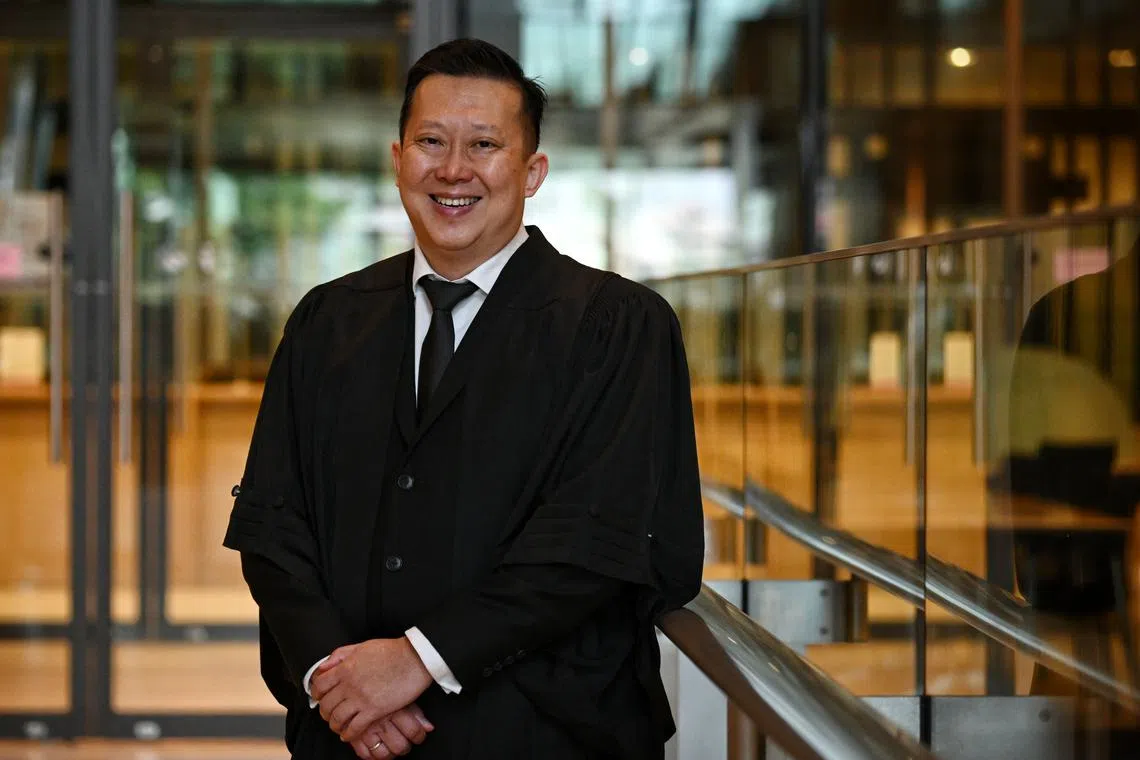Lawyers should learn AI but must be aware of its ethical risks: Chief Justice Menon
Sign up now: Get ST's newsletters delivered to your inbox

Chief Justice Sundaresh Menon delivering a speech as he presided over the first session of the Bar at Mass Call 2023 on Aug 21.
ST PHOTO: KUA CHEE SIONG
Follow topic:
SINGAPORE - To argue a case before the court in Singapore, a person – who was representing himself and did not engage a lawyer – made submissions.
The problem was, that individual used ChatGPT which made things up, and he was found out only after checks were made, said Chief Justice Sundaresh Menon on Monday.
He was addressing 160 new advocates and solicitors who were called to the Bar on Monday.
Chief Justice Menon reminded them that lawyers who use generative artificial intelligence (AI) must verify the accuracy of the information gathered from such tools.
Because while AI can serve as a supplement to their work, it must not be a substitute, as AI tools come with various ethical risks.
It was the first time since 2019 the mass call event to admit new lawyers was held in a fully physical format after the pandemic.
In 2022, newly minted lawyers were present at the Supreme Court auditorium, while their families joined remotely.
Chief Justice Menon said generative AI will likely play a key part in the efforts of Singapore courts to enhance access to justice.
But he added that even though lawyers should acquaint themselves with the emerging digital tools that will become available for legal practice, these tools may also raise several ethical risks and concerns.
“Such tools are obviously not bound by values like honesty and integrity, and can therefore provide wholly incorrect answers,” he said.
He cited two New York lawyers who filed a brief that referred to several purported authorities that had been invented by ChatGPT.
The lawyers failed to verify the fictitious cases, and were fined and sanctioned.
Chief Justice Menon said one such case had already happened in Singapore.
He added: “There has been at least one case in which a self-represented person used ChatGPT to create submissions that included fabricated case law.
“This was only uncovered after counsel for the opposing party embarked on an ultimately fruitless search, and pointed out to the court that there were no such cases.”
Chief Justice Menon did not mention how this individual was dealt with.
He cited a recent survey of lawyers conducted by the Thomson Reuters Institute, which showed that 82 per cent of respondents felt generative AI could be used in legal work.
An example, he said, is Harvey, an AI tool tailored to the legal field that can answer legal queries, summarise information, and prepare drafts of documents.
He said: “Generative AI tools will greatly enhance existing uses of AI in the law such as in legal research and the creation of legal documents. The current crop of tools are already highly adept at interpreting user queries and synthesising complex information.”
One example is the Divorce eService by the Singapore courts, which is an electronic platform that allows the public to generate and file documents for divorce cases, he said.
Emphasising the need to preserve the status of lawyers as an honourable profession, Chief Justice Menon said the central importance of honourability to this vocation is reflected in the motto of the Singapore Academy of Law (SAL): “Honor est in Honorante”.
This means that “one becomes honourable only through the honour one bestows upon fellow members of the profession, the court and the public”, he explained.
The new lawyers on Monday were the first to be issued with a custom lapel pin by SAL, which they may wear when they perform their court and professional legal duties.
Among the new lawyers was Ms Yasmin Ziqin Mohamed Yousoof, 23, who said that while AI can help with basic legal research and can streamline administrative tasks, it is essential for lawyers to exercise caution when using these tools.

Ms Yasmin Ziqin Mohamed Yousoof said it is essential for lawyers to exercise caution when using AI tools.
PHOTO: COURTESY OF YASMIN ZIQIN MOHAMED YOUSOOF
She said: “AI has to be the tool, and not the workman itself.
“Balancing AI’s capabilities with a lawyer’s legal expertise and emotional intelligence remains crucial for maintaining the quality and integrity of the legal practice.”
Lawyer Andrew Chan, 47, made a mid-career switch to law following his role as director of the defence psychology department at the Ministry of Defence.

Mr Andrew Chan made a mid-career switch to law following his role as director of the defence psychology department at the Ministry of Defence.
ST PHOTO: KUA CHEE SIONG
He said: “Being called to the Bar is to be given the privilege of playing a vital role in society – whether it is supporting access to justice, protecting the rights of individuals, or facilitating commercial transactions.”


